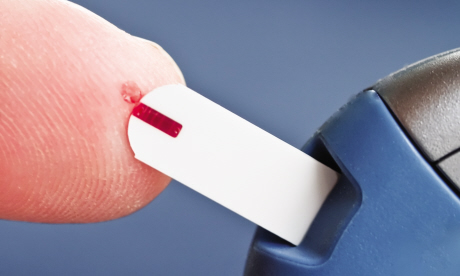
Around 3.7 million Brits – and rising – now suffer from diabetes. But what does the disease mean for travellers? Dr Jane Wilson-Howarth offers some essential advice
More and more of us are at risk of developing diabetes. It is thought that 3.7 million British residents are currently affected by the disease – including 850,000 who are unaware they have it. It’s predicted 5 million will be affected by 2025. Yet for most people, diabetes is eminently avoidable.
Diabetes is a fault in the body’s ability to handle sugar; as all organs – including the brain – need sugar to function, this is a problem. Too little circulating sugar causes collapse and even coma; too much is similarly bad. Poor control of blood sugar predisposes people to infections and, in the long-term, increases risk of heart attack, clots and stroke.
Diabetes does not need to compromise your travel plans but it does demand a few extra considerations.
The hormone insulin, which controls blood sugar levels, is produced in the pancreas but also (according to new research published in 2012) in the brain. There are at least three variants of diabetes.
Type 1 often starts in later childhood or early adulthood and is generally announced by dramatic symptoms that start suddenly. It is caused by the pancreas ceasing insulin production. Treatment is through injections of replacement insulins.
Type 2 diabetes tends to come on more insidiously and is commonest in people over the age of 40. As more British people now choose to eat a poor diet, take insufficient exercise and allow themselves to become obese, a growing number are developing this form: around 90% of people with diabetes have type 2. Sadly, once you have developed this type of diabetes, losing weight does not reverse the process; the body’s ability to handle sugar is forever compromised. However, symptoms can usually be controlled – and prescription medicines avoided – with dietary improvements.
A third kind of diabetes was postulated in 2012, linking a development of insulin resistance to the progression of Alzheimer’s dementia. This is currently under discussion among medical researchers.
If you suffer from diabetes, there’s a lot to consider when planning a trip. One important question to ask is whether you are fit for the journey you propose. Someone planning a solo trip to a resource-poor destination needs to be fitter than someone travelling with a companion within the industrialised world.
Take an honest look at how stable your health is and choose less ambitious destinations if your condition is unstable. Have you needed frequent hospital admission for your diabetes? People whose diabetes is ‘brittle’ will be at increased risk of medical disaster while abroad, and should certainly discuss travel plans with their usual doctor.
Anyone who can’t recognise a ‘hypo’ (when their blood sugar falls below normal) is also at increased risk and would be unwise to travel alone, or to a remote destination. Both considerations may influence the ease with which you can buy travel insurance – and you should always travel with proper insurance, as well as your EHIC.
Diabetes (as well as obesity) increases the risk of a blood clot, so properly fitted flight socks are an especially good idea on any journey where you are sitting still for five hours or more; this includes land travel. Also consider wearing medical alert jewellery.
Skin infections, as well as fungal infections of the genitals, are more common in people with diabetes – especially if blood sugar is poorly controlled. Such infections are also more likely in hot, humid destinations, so it is important to consider strategies for dealing with skin problems and thrush. Carry appropriate treatment and knowledge of the clinical facilities available on arrival.
Note, while type 2 diabetes is thought of as a milder disorder than the insulin-dependent form, diarrhoea and other travel-acquired infections can make any person with diabetes very ill, and it is important to discuss management with your GP.
Diabetes sufferers need to eat correctly and regularly. Travel itself, as well as changing time-zones, can make this more difficult.
The best diet for diabetes sufferers is one with a low glycaemic index – that is, with plenty of fibre but without a lot of refined sugar. This isn’t always easy to arrange. Perhaps one of the most challenging environments is on board a long-haul flight or during an unscheduled stopover. Note, it’s not necessary to order special diabetic meals on flights but sugary puddings need to be avoided.
The well prepared diabetes-sufferer will carry extra and emergency medicaments, drinks and snacks to cope in case of delays and lost luggage. They will also travel with a good knowledge of appropriate snacks – for example, fresh fruit, nuts and whole grains. If stuck browsing for a healthy snack in a departure lounge, consider smoothies, yoghurt and cottage cheese.
For further suggestions and advice, visit www.diabetes.co.uk; it has a discussion forum and links to insurance deals. Also, you can post any diabetes-specific questions at www.diabetessupport.co.uk. To contact adventurers with diabetes, visit www.facebook.com/groups/131297830871.
Anyone who is round rather than lean, especially if their body mass index (BMI) is over 30, should keep a look out for the symptoms of diabetes, including:
Although people with diabetes are discouraged from eating sweets/sugar, it’s OK to take oral rehydration salts (which contain glucose) if diarrhoea strikes.